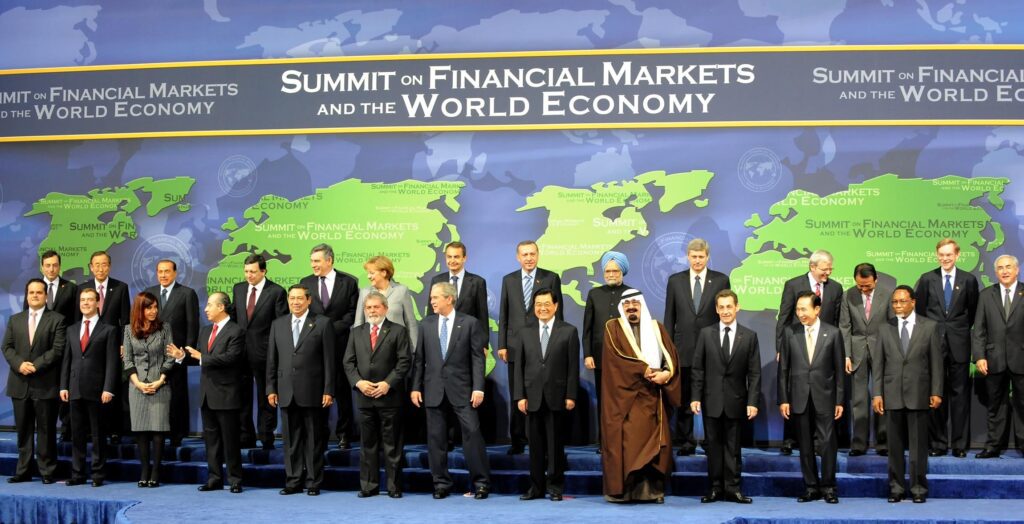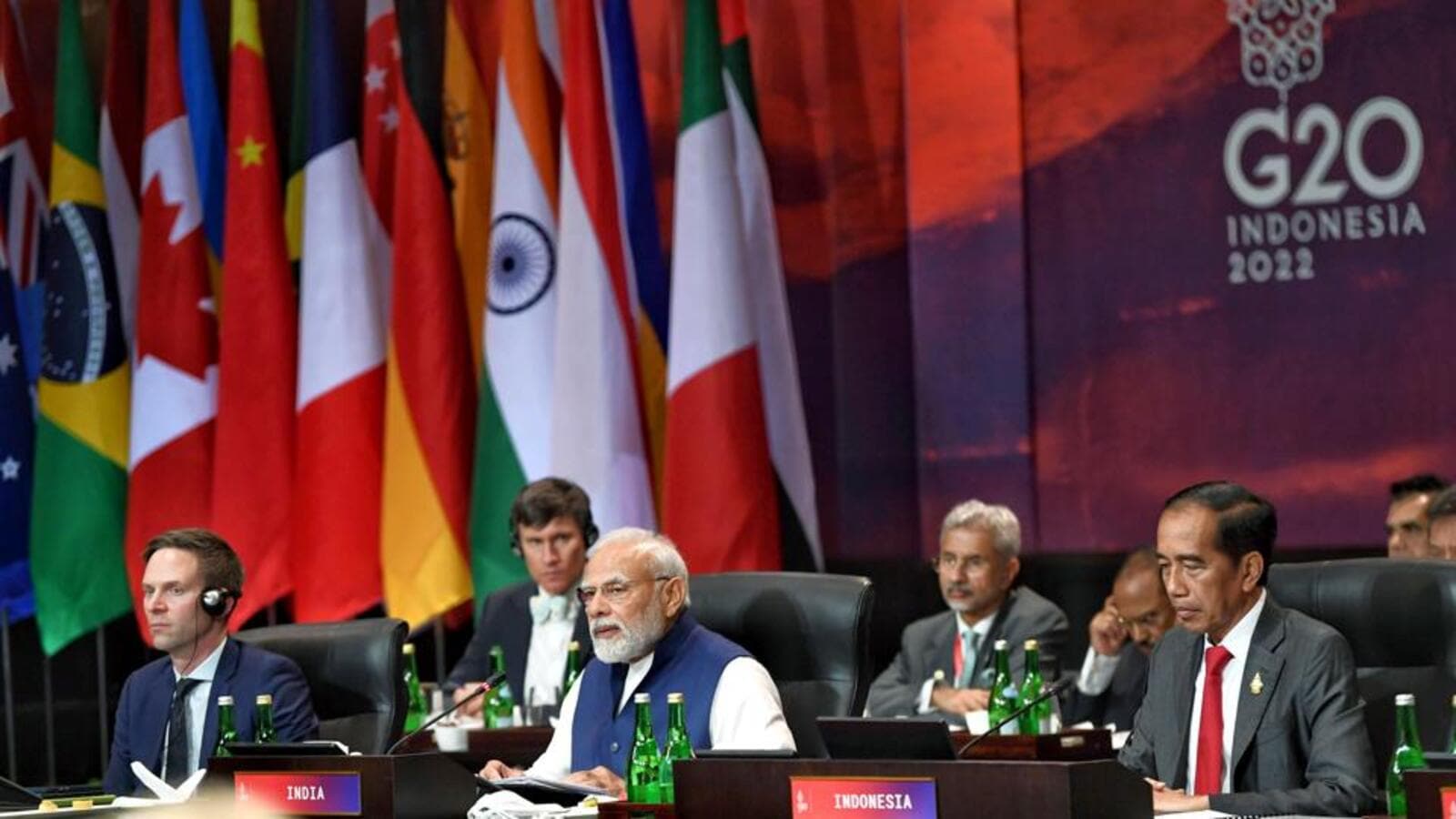The 17th annual G20 Summit was held on February 25-26, 2023 in the vibrant capital of India, New Delhi. This marked the first time India has hosted the premier forum for international economic cooperation. The last time Asia hosted the G20 was in Osaka, Japan in 2019.
Over the last two decades, the G20 has evolved into the foremost platform for developed and developing nations to address pressing global challenges. This year’s summit was even more crucial as world leaders sought collective solutions amidst economic slowdown, geo-political tensions, climate crisis, and ongoing pandemic recovery.
Genesis of the Group of 20
The Group of 20, or G20, was formed in 1999 after the Asian Financial Crisis rocked the global economy. G7 finance ministers and central bank governors realized the need to include emerging economies in discussions about the international financial system. The first G20 gathering took place in Berlin with finance ministers and central bank governors from 11 key economies.

After the 2008 global financial meltdown, the first G20 Summit was held in Washington D.C. as leaders from 20 systematically important nations came together to restore growth and stability. Since then, the G20 Summit has expanded beyond economic cooperation and now provides overarching direction across major global issues each year.
About the G20 Members and Structure
The G20 consists of 19 countries plus the European Union. The members represent over 80% of world GDP, 75% of global trade, and two-thirds of the world’s population. The members are Argentina, Australia, Brazil, Canada, China, France, Germany, India, Indonesia, Italy, Japan, Mexico, Russia, Saudi Arabia, South Africa, South Korea, Turkey, United Kingdom, United States, and European Union.

The G20 operates without a permanent secretariat. The presidency rotates annually between member nations, who host the summit and set priorities. India holds the 2023 presidency, with Brazil set to assume the role in 2024. Along with members, invited guest countries and international organizations participate.
Arrival of World Leaders in Delhi
New Delhi went into high-security mode in preparation to host this diplomatically important event. Heads of state, foreign ministers, and delegates from nearly 20 countries arrived in India. Prime Minister Narendra Modi led India’s largest-ever diplomatic exercise by personally receiving leaders at the airport.
Among the prominent dignitaries were U.S. President Joe Biden, U.K. PM Rishi Sunak, Chinese President Xi Jinping, Australian PM Anthony Albanese, Japan’s Emperor and PM, Saudi Arabia Crown Prince Mohammed bin Salman, Singapore PM Lee Hsien Loong, and South Korean President Yoon Suk-yeol.
Notably absent were Russian President Vladimir Putin, who sent foreign minister Sergei Lavrov instead, and Brazilian President Lula da Silva. Ukraine’s President Volodymyr Zelensky was a special invitee and addressed the summit virtually.
Read about Inspiring Global Unity at G20 summit 2023: Vasudhaiva Kutumbakam (One Earth – One Family – One Future)
Cultural Connect
India organized a grand welcome for G20 delegates. The city was decked out with national flags, colorful cultural motifs, and lights to showcase Indian heritage and diversity. Leaders visited the Taj Mahal in Agra and other heritage sites.
Modi hosted the leaders at a specially-curated reception. The leaders wore traditional garments representing different regions of India. They were treated to Indian cuisine, arts and performances, reflecting the summit’s theme of “Vasudhaiva Kutumbakam” or “One Earth, One Family, One Future”.
PM Modi’s Mascot Gift
As a unique souvenir, Modi gifted handcrafted mascots made from recycled plastic and materials by rural self-help groups. Named “Amrit”, the mascot represented India’s message of inclusive development through women’s empowerment. Each leader’s mascot was distinct with special designs symbolizing their country.
Inaugural Session
The summit officially commenced with the inaugural session at the recently renamed G20 Delhi Summit venue. Modi inaugurated the event along with other G20 members in a grand display of unity and cultural diversity.

In his inaugural address, Modi emphasized the significance of developing countries and the Global South for inclusive, sustainable global progress. He highlighted India’s rapid growth and the need for reformed multilateral institutions and fair financing to reduce disparities.
Official Discussions and Negotiations
Following the inauguration, G20 working sessions took place at the summit venue and luxury hotels. The leaders discussed priorities across three key pillars:
- Future of Financing: Digital public infrastructure, diversified supply chains, and financial inclusion for vulnerable populations were deliberated. The leaders reaffirmed their commitment to the G20’s core agenda of building a strong global economy.
- Future of Development: Focus areas included food and energy security, health for all, technological transformation, and equitable opportunities for women and youth. India pushed for global partnerships to assist vulnerable countries most affected by the economic downtown.
- Future of Our Planet: Battling climate change and bolstering green financing took centerstage. Developed nations were urged to meet the pledged $100 billion annually for developing countries’ climate actions.
Besides the working sessions, leaders met bilaterally and in informal settings to exchange views on regional issues and relations between their specific countries.
Prime Minister Modi held bilateral talks with several heads of state including Biden, Macron, Sunak, and Saudi Crown Prince Salman on the summit’s sidelines. He called for united resolve to address challenges like terrorism, climate action, and equitable growth.
The Negotiated Outcomes
After intense discussions, G20 leaders adopted the Delhi Declaration, outlining the summit’s consensus outcomes:
- Strong condemnation of Russia’s aggression against Ukraine, demanding immediate cessation of violence. However, the divide over the war remained, with some calling Russia’s actions unjustifiable while others took neutral stance.
- Commitment to pursue inclusive policies for economic recovery, with sensitivity to challenges for developing countries and vulnerable sections.
- Agreement to pave sustainable development through green transitions, clean energy, and climate financing of $100 billion annually from developed nations.

- Pursuit of digital public infrastructure and coordination on technological transformation to maximize opportunities and mitigate risks.
- Support to extend G20’s debt relief initiative for distressed economies till end of 2024 and suspend debt servicing amid global uncertainties.
- Endorsement for G20 Accord for Disaster Resilient Infrastructure to strengthen preparedness and response capacities.
- Continued efforts to bolster global health governance and financing, including a new G20 Framework Working Group on Health.
The Road Ahead
While G20 leaders found common ground on most agenda items despite differences on political issues, the real test lies in translating commitments into action. The world will watch closely as the baton of G20 presidency passes from India to Brazil how consistently these shared goals are pursued, especially on equitable post-pandemic recovery and climate change aid to the developing world.
Nonetheless, the 2023 New Delhi Summit represented a milestone for India in steering major economies towards inclusive multilateralism. It highlighted India’s growing leadership on pressing global imperatives like climate action, women’s empowerment, digital public infrastructure, health for all, and sustainable financing.
